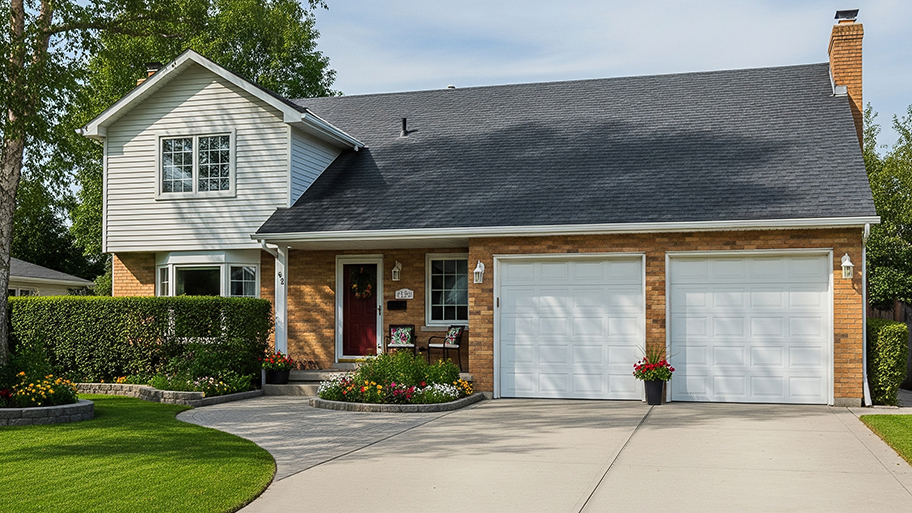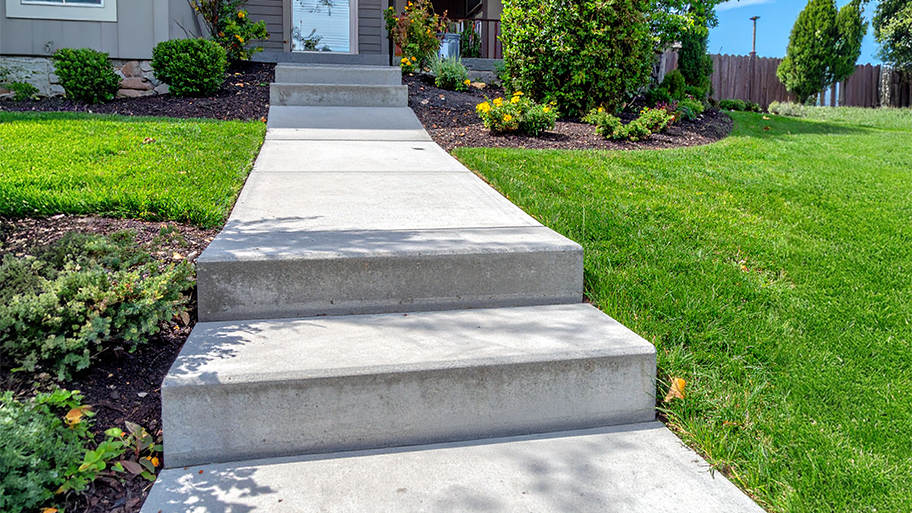
Concrete driveways stand up to a lot of pressure over the years. How much do concrete driveway repairs cost when it's time to give it a little TLC?
The cost of concrete delivery averages around $5,427, and most pay between $2,122 and $8,748. A pro will factor in the quality and location for your total cost.


Concrete delivery costs $110 to $150 per cubic yard for materials and labor.
Delivering concrete for a standard pour, such as a concrete driveway, costs between $1,000 and $2,000.
You’ll pay $50 to $400 in delivery fees alone, depending on distance, load size, and supplier minimums.
High-PSI or specialty concrete mixes cost about 20% more than fast-setting or general-purpose options.
The average cost of concrete delivery is about $5,427, with a range of $2,122 to $8,748. In some cases, the cost can be as low as $500 or as high as $17,700. Concrete delivery is one task that’s best left to the professionals, especially for larger projects.
To help homeowners with their next project, Angi provides readers with the most accurate cost data and upholds strict editorial standards. We’ve surveyed thousands of real Angi customers about their project costs to develop the pricing data you see, so you can make the best decisions for you and your home. We pair this data with research from reputable sources, including the U.S. Bureau of Labor Statistics, academic journals, market studies, and interviews with industry experts—all to ensure our prices reflect real-world projects.
The average cost of concrete delivery per yard is about $130, with a range of $110 to $150 per cubic yard. You can also order concrete by the truckload. One truckload contains about 10 cubic yards of material and costs between $1,100 and $1,440.
Here’s how much concrete you might need for different projects in cubic yards:
| Concrete Project | Volume Needed (Cubic Yards) |
|---|---|
| 10’ by 10’ patio | 2 |
| 10’ by 20’ patio | 3 |
| 20’ by 20’ patio | 5 |
| 30’ by 20’ patio | 8 |
| Single-car driveway | 5 |
| Two-car driveway | 10 |
| Sidewalk | 1–2 |
| 3-step concrete stairs | 1 |
| 4-step concrete stairs | 2 |
| Concrete stairs (flight) | 3–4 |
In terms of type, fast-setting concrete (used for walkways and sidewalks) is the most cost-friendly at $125 per cubic yard. You’ll pay more for general-purpose and high-PSI concrete. Here is the concrete delivery cost breakdown by type:
| Type of Concrete | Best Projects by PSI | Average Cost per Cubic Yard |
|---|---|---|
| Fast-setting | Walkways, sidewalks (3,000 PSI) | $125 |
| General Purpose | Patios, walkways, sidewalks (3,000–3,500 PSI) | $130 |
| High PSI | Driveways, home foundations (4,000 PSI) | $150 |
You should also consider other cost factors for concrete delivery near you, including distance, type of truck, fuel surcharges, and more. Here’s what to expect.
Delivery distance: $5–$10 per mile after the base radius
Type of truck: Average of $20 per cubic yard for ready mix truck, $25 per cubic yard for tow behind mixer, $25 per cubic yard for volumetric truck
Short load fees: $40–$60 per cubic yard if you’re buying less than the average capacity of a cement truck (about 10 cubic yards)
Fuel surcharges: $20–$40 per load if the delivery distance is longer than normal
Concrete installation: $4–$16 per square foot, depending on the type of installation
Concrete removal: $2–$6 per square foot
Land excavation costs: $50–$200 per cubic yard
Land clearing costs: $200–$6,000 per acre
Land leveling: $0.47–$2.28 per square foot
Mixing your own concrete is possible for small jobs, and you’ll need to pay for the concrete itself and a truck rental ($120 to $150 per day). Larger pours require professional concrete delivery services near you.
Here are the benefits of hiring a professional:
No mixing or hauling required for the homeowner
Proper reinforcement and site prep handled by experts
Consistent water-to-cement ratios for maximum strength
Smooth, high-quality finish
Faster and efficient work
Best for projects over 1 cubic yard or with complex forms
Here’s when you might DIY:
Using premixed concrete (which costs $4.50 to $27 per bag) or dry concrete ingredients that you mix on-site
Small projects like patching a step or replacing a single section of a walkway
You have the tools, time, and experience to mix and pour properly
Ability to rent a truck or trailer
Desire to save on labor costs
While concrete installation is heavily governed by building code requirements with little room for structural changes to save money, there are still a few ways to reduce the overall cost of a project.
Use full truckloads if possible. Combining two or more concrete projects, such as a walkway and patio, can help you order a full truckload and avoid short-load fees, which often add $40 to $150 per delivery.
Choose premixed concrete. For larger pours, choosing premixed (ready-mix) concrete is more cost-effective than having a contractor mix concrete on-site. It can save 10% to 20% in total project costs.
Transport the material yourself. For small projects, you can use bagged concrete instead. Pick it up yourself from a local home improvement store to avoid delivery charges, which can range from $50 to $400+.
Perform some prep work if possible. For example, you can save $200 to $6,000 per acre by clearing land yourself.
Hiring a concrete contractor has numerous benefits, as they’ll handle mixing, pouring, proper reinforcement, site preparation, and more.
You might attempt DIY if you’re using premixed concrete or dry concrete ingredients that you mix on-site, but this is only suitable for small projects.
Most companies charge by the cubic yard, so it's essential to get an accurate measurement for your project before ordering concrete.
From average costs to expert advice, get all the answers you need to get your job done.

Concrete driveways stand up to a lot of pressure over the years. How much do concrete driveway repairs cost when it's time to give it a little TLC?

Between the endless customizations and decades of strength, the cost of a concrete driveway may be worth the investment. Let's break down your bottom line.
Need to breathe new life into your exterior stoop? Use this guide on concrete step repair cost to see the price of a professional repair.

Concrete may be strong, but it's surprisingly sensitive to extreme temperatures. Here's what to know about pouring concrete in cold weather.

A concrete driveway can add value to your home. Learn what factors influence your return on investment (ROI) for a new concrete driveway

Pouring concrete steps can add to your home’s curb appeal or lead out to your patio. Learn how to build concrete steps that will last.